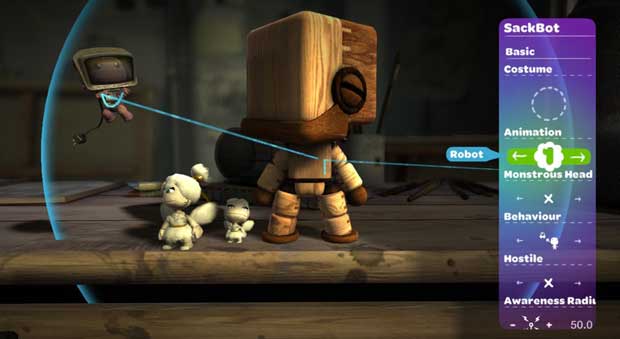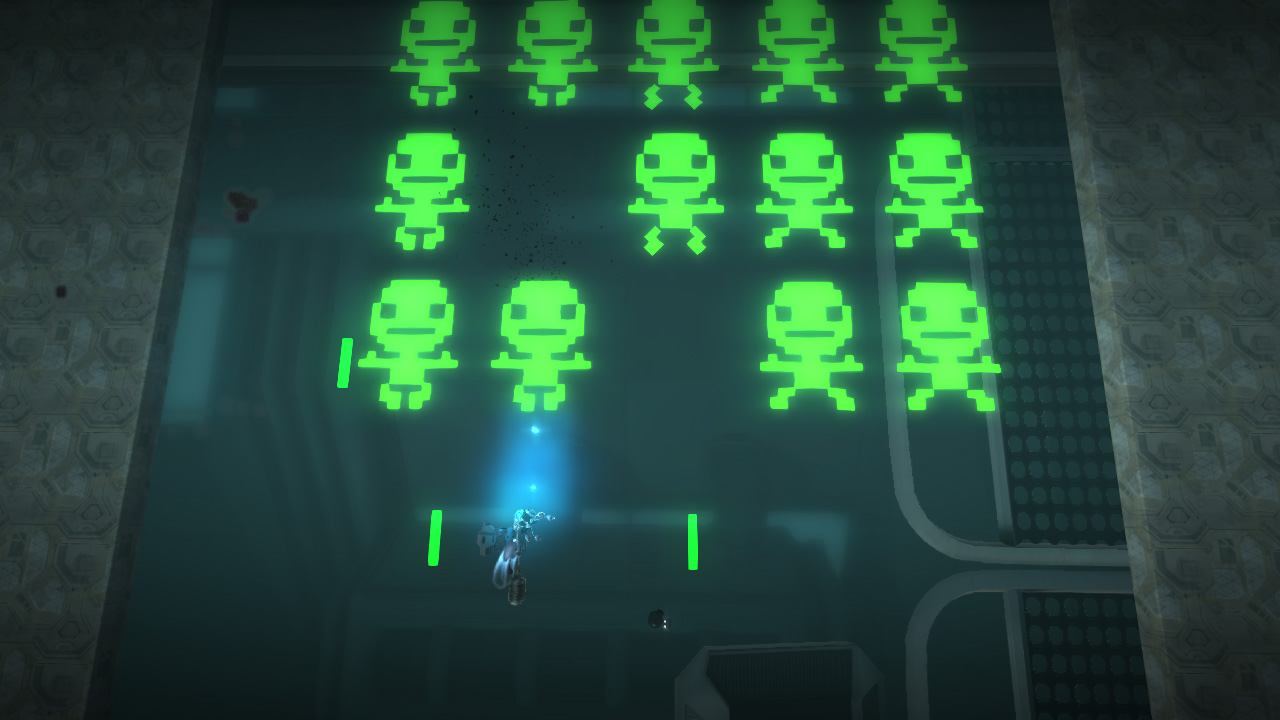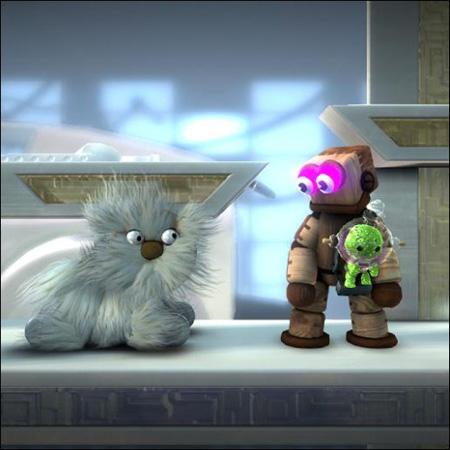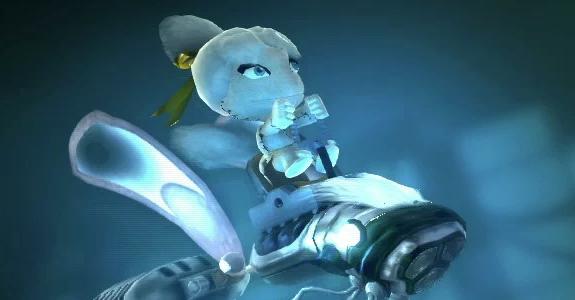LittleBigPlanet 2 Review
From the moment it was announced, Sony's DIY-platformer Littlebigplanet was a shining beacon of hope for the games industry. In a market all too devoid of new and interesting ideas, LBP was one of the rare games that looked to the past for innovation. Positioning a 2D-platformer as one of its major games of 2008 was a bold move for the electronics giant, but as more and more media was released for the game, it began to look as if the Sony and Media Molecule had a real winner on their hands. Thanks to its Play, Create, Share philosophy, which allowed players access to an extremely flexible and complex level editor, LBP went on to become one of the best-selling PS3 titles of the year and a major new franchise for Sony. Unfortunately, although the game practically spewed creativity and style, the gameplay often did not meet those high standards. The physics, arguably the most important part of the game, felt floaty and led to a lot of cheap deaths in the story mode. Additionally, the Create mode was not as simple as advertised, meaning that although awesome levels could certainly be created, it took a life-destroying amount of dedication to reach this level of craftsmanship. Now, just over two years later, Sony and Media Molecule have delivered a sequel to a game that, by all logic, should not need one. Do the improvements justify plopping down another sixty dollars?
The answer to that question is a resounding "yes!" Every facet of the Littlebigplanet formula has seen some form of improvement in this sequel, and the end result truly speaks for itself. Almost every complaint one could muster towards the original has been remedied in some way, making for a smoother play experience all around. As the game has been split up into three subcategories -- Play, Create, and Share -- this review will be split likewise in an attempt to cover the improvements in as much detail as possible. First up is:

PlayJumping into the story mode is the fastest way to scratch your platforming itch in LBP2. Unlike the last game, there is an actual, cohesive story being told here. Most of it is gibberish. That said, it's quaint and charming gibberish, and by the end of the game it will have become clear that none of this was particularly supposed to make a lot of sense in the first place. Supporting the story are a number of memorable characters, including a manic-depressive notepad and a loony professor whom you must rescue from an insane asylum. These characters are supported by one of the major additions to the game: full voice acting. The voiceovers bring the characters to hilarious life and give the world a living, breathing feel that was absent in the last game's static text bubbles.
One major benefit of the more story-focused campaign is that the game feels more like a whole than the last entry. The story has a discernible beginning, middle, and end, and each of the worlds feels like it fits in with the overall arc of the plot. This is in stark contrast to the last game, which was stylistically and thematically all over the place. That's not to say that there is no variety in this sequel; on the contrary, the levels house a far greater variety of gameplay styles than before. It's just that this time, all of the levels feel like they are unified by a common purpose and style.
And what a joy these levels are. While at first it may seem like the same-old-same-old, it will quickly become apparent that the story levels move at a better pace than they did before. The level design has really been stepped up a notch here. It almost seems as if Media Molecule is challenging their community to do better. The addition of tools that can be held in Sackboy's hand have added even more variety to the proceedings. It is now possible to use grappling hooks, power gloves, water guns, and more. One of the coolest new tools is the Cakeinator, a device which launches sticky cakes that can then be used as makeshift platforms. This item is put to particularly fun use in the second world, and will probably be used to great effect in future user-created levels.

LBP has always placed an emphasis on competitive co-op play, and this newest entry does not rock the boat too much in this regard. All of the levels in the game, whether pre-packed or user-created, can be played with up to three friends. As before, playing in multiplayer is highly preferable to playing by yourself. Certain collectibles will only become available with two or more players, and the onscreen chaos that results from the added players is visually more appealing than a lone Sackboy traipsing around the level. Luckily, none of the online issues that haunted the first game for weeks after its release are present here. Online works smoothly and is very simple to engage. Getting your Sackboy-party on is simply a matter of selecting "Join Us" upon choosing a level. The game will automatically find other players in the same level and pop you into their game at the next checkpoint that the host player crosses. Sadly, the next checkpoint never seems to be the
first checkpoint of the level, meaning that if you choose to join up with other players, you will be throw unceremoniously into their game in the middle of a level.
The other minor issue that has persisted in the gameplay department is the wonky physics, which have made the transition from the first game. Clearly, this is just the way that the developers intended LBP games to feel and the floaty physics are not going to be changed anytime soon. In the first game, this led to a lot of frustrating moments, as Sackboy would miss a jump that by all account he should have made, or a piece of material would fly off of the screen in an unpredictable and illogical way. For the most part, these moments have been eliminated in the sequel. It feels like Media Molecule has really gotten a handle on exactly how controlling Sackboy works, and the levels have been designed with the physics in mind. While there can still be some frustrating moments, most of which involve the grappling hook tool, the floaty jumping physics are actually used to great effect in a number of late-game levels.
Actually, it may not be fair to call any of the story mode content "late game," as LBP2 is a very short game and can easily be bested in a day. Having said that, in this case it is not the length of the game that makes it worth playing, but the variety of levels and the energy and passion with which they were created. Despite its short length, and despite the fact that many hardcore players will soon abandon the story mode for creation, there truly are some great moments housed in these levels and it would be a shame to undersell them.
Besides, once you finish the Play, you can devote your full attention to the:

CreateUpon booting up the level editor, it may initially appear that not much has changed. You still begin in a sparse box of a level controlling a floating Sackboy, you still go through tutorials narrated by the wonderful Stephen Fry, and you can still jump into Play mode at any time. However, upon delving deeper into the tutorials, it becomes clear that an insurmountable amount of content has been added to the Create mode. This is a paradise for the truly creative (and persistent) minds that flourished thanks to the original LBP. Although all of the changes are too numerous to list here, there are a few that stand above the rest.
Most notable is the ability for players to create genres outside of LBP's trademark platforming. This new feature is shown off a bit in the last few worlds of the story mode, but so much more can be accomplished with it. Already, there are fighting games, racing games, sports sims, top-down shooters, RTS, and more available to be played thanks to enterprising creators. Someone has even recreated the wonderful PSN game Flower with LBP, albeit less gracefully than the real thing.
Another major addition is the ability to record dialogue and sound samples using a microphone and import them into your level. No longer will you have to play out your dramatic stories through text bubbles alone. This really fits the game well, as some of the more dramatic and atmospheric levels created by the community with the original game felt odd due to the lack of voice acting. The voice acting fits in even better thanks to yet another new feature: the ability to create cutscenes, complete with dramatic camera angles and effects.
Thanks to these additions, it is not just possible, but entirely feasible, to create an entire game of your own within Media Molecule's game. Does your story call for a shooting sequence? Now you can integrate that seamlessly into your game. How about a car chase, or an epic boss fight, or a Tetris-style puzzle? All of these options and more are right at your fingertips. As always with LBP, compromises may have to be made, but learning the ins and outs of the creation systems is half of the fun.
Although many aspects of the level editor have been streamlined, the addition of so many new features means it is still a complicated and lengthy process to create your own level. If you want to create a level that is actually worth playing, it will take a very long time. If you want to really blow people's minds, or if you have a vision for a full game complete with cutscenes and voice acting, it will take forever to assemble all of the pieces. You will have to really get obsessed with the game and its mechanics. Be that as it may, it is kind of difficult
not to become obsessed. Once you have a goal in mind, and perhaps notepad full of rough design sketches, the level creator can be pretty addicting.
But what if you don't have the time or the patience for creating levels? Fear not, for LBP2 makes it easier than ever for players to

ShareThe main aspects of sharing remain the same as they were a few years back. Putting your level online for all to see is as simple as hitting a button. By selecting "Community" from the menu, you can browse recently uploaded levels. The presentation of these levels is pretty random and chaotic, so it would be beneficial for you to sort them by one of many available parameters, such as "Newest," "Highest Rated," and so on. While there are tons of levels out there, many of the best are sorted away under a separate menu called "MM Recommends." Rating, reviewing, and categorizing levels is handled in a similarly simple way.
But all of that is pretty much par for the course in the world of LBP. Where the sequel really steps things up is in its web integration. Each creator is actually given their own web page on
LBP.me. By signing in with your PSN ID on this website, you can sync up all of your created levels with the site. Levels can then be searched for by a number of parameters, including which levels are currently "trending" in the community (in other words, which levels lots of people are playing,) and these levels can be remotely added to your PS3's Play queue from the website. Provided the community latches on to this website, this could be an invaluable tool for publishing levels.
All of this playing, creating, and sharing is supported by a fantastic presentation. Despite the game's 2D presentation, the graphics are superb. The entire game has a whimsical and otherworldly style to it that's unlike anything to come before, even in the first game. Similarly, the soundtrack is great. The music bounces from charming to spooky to epic depending on the needs of the story, and the use of Passion Pit's hit "Sleepyhead" over the end credits fits the game's bouncy mood nicely. All of the voiceovers are top notch, especially the aforementioned depressed notepad, who is particularly funny. The real standout, predictably, is Stephen Fry as the narrator. Although it can seem at times that his quaint charms are being strained a bit by the script, you would never know it from the quality and timing of his delivery.
As one of LBP2's many loading screen anecdotes states, "Good things come to those who wait." The first Littlebigplanet had charm and style, sure, but underneath the charming veneer lay some annoying frustrations and quirks, coupled with a feeling of missed potential. Years later, Media Molecule has delivered a sequel that fulfills all of the promise of that first game and far, far more. Littlebigplanet 2 is an excellent game no matter how you slice it, and in patient and creative hands, it is a true masterpiece.



